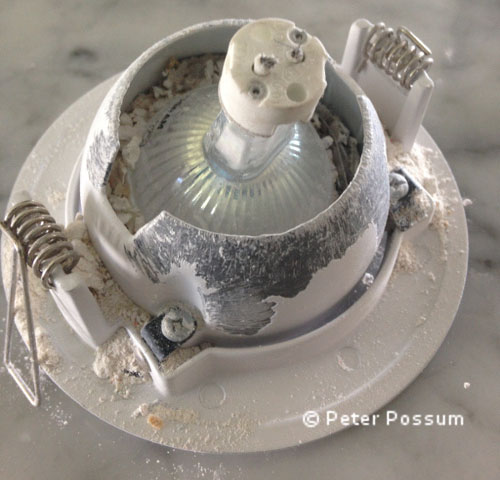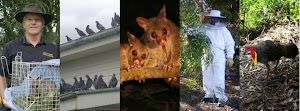In Peter Possum’s experience, the responsibility for removing a pest from a property is not clear cut and may depend on the circumstances.
In broad terms the home owner must provide a property that is healthy and suitable to be maintained that way and the tenant must then keep it clean in all the living spaces.

Responsibility for Pests in Rented Property
Insect pests, particularly cockroaches and silver fish are a common problem and the tenant is usually responsible for controlling insects during their stay and doing a final treatment when vacating the property.
To evict possums from the inside the roof of a property Peter Possum needs to block off entry holes which frequently requires minor modifications to the building. This means that legally, we need to obtain the owners permission to make the changes and the cost is often higher than an insect pest treatment. So we find most property managers will arrange the quote for the owner to consider.
Some owners and property managers believe rodents are attracted by poor hygiene but that is simply not true because rats or mice visit most properties at some time. However they rarely reach problem numbers without an attractive food source and sometime to hide. That can occur if the property is near to a stream or creek with lush vegetation or even a nearby land-drain.
Peter Possum knows that properties with serious rodent problems often have bird aviaries, chickens or guinea pigs nearby. They provide an excellent food source and so rodent numbers can explode, but those cages and pets may be located in the neighbouring property. Failing to cut the grass and storing too many items under the house will attract pests by providing them with places to hide but instead, it may be the neighbour’s house that is poorly maintained. So there are circumstances where the tenant has created a problem and other times when it is a feature of the property or neighbourhood that is responsible. There have been rare occasions when the Queensland Health Department have directed owners to take actions, on hygiene grounds but that outcome requires a serious pest problem well beyond one that would cause a reasonable tenant to vacate a property.
Strata titled buildings with a body corporate, may agree to pay for a rodent treatment of the whole property while in others it is considered the responsibility of the individual unit occupant. Yet the treatments usually have to be applied to the “common areas” such as the roof space and building perimeters so the most effective approach is a whole of building one, usually paid for by the body corporate. If instructed to just treat part of the property we can do that but we will point out the risk that the result may be disappointing.
Peter Possum is willing to work with property managers, tenants and owners for both strata titled and freehold properties to provide the most effective treatment that we can, at an acceptable price. For rented properties, the owner will usually agree to pay when requested by a tenant since that avoids property damage and supports the owner’s investment but if that agreement is not possible, there are some cases where a concerned tenant requests the treatment, at their own expense.







